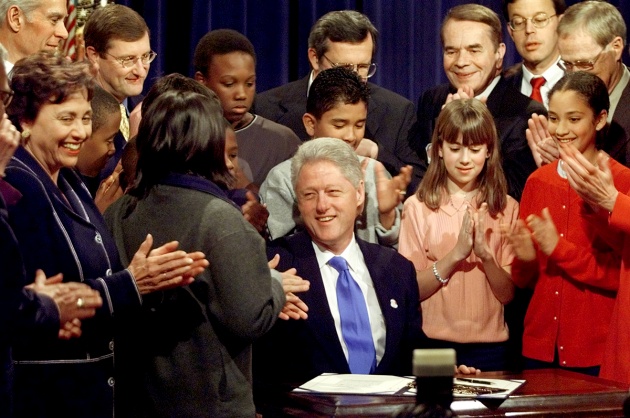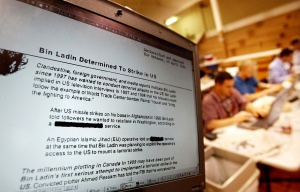Eurospeak: “peace” via US missile bases, a mobile missile “blanket”, a “convention” on cybercrime, “Long live NATO!” Eric Walberg strains to hear a Euro voice of reason
After being the playground for 20th century militarism, after finally uniting with no enemies in sight, you think that Europe would be the world’s bulwark for peace. But a continent that rejected the US war in Vietnam is in thrall to US militarism as never before. None of the European peoples support the current wars and arms race, yet Euro governments dutifully cough up troops to send to Afghanistan. Many sent forces to Iraq. All of them are happy members of NATO, which is unashamedly the forward presence of the US military around the world, having long ago cast aside any pretense of defending Europe from the dreaded communists.
There have been rare glimmers of protest -- the German and French refusal to back the invasion of Iraq, and the grassroots Czech campaign against the Star Wars base. Germany’s Die Linke is the only party to call for immediate withdrawal of troops from Afghanistan and has surged past the Greens to 14 per cent, but it will be kept out of any future government. Messy coalition politics (in the worst case, the safe “grand coalition”) allows the US to bully weak little countries into keeping “defence” policy bi-tri-partisan. “Kick the bums” out, as happened last in Poland in 2007, did not mean an end to the unpopular missile base plans there, nor an end to Polish troops in Afghanistan, though 81 per cent want the troops home now.
 the derivatives markets and credit-default swaps. Enron would go on to become the largest corporate fraud in history. Washington would become unashamedly captive to Wall Street. Presidential election stolen by George W Bush.
the derivatives markets and credit-default swaps. Enron would go on to become the largest corporate fraud in history. Washington would become unashamedly captive to Wall Street. Presidential election stolen by George W Bush.

 A scandal erupted last week in sleepy Ottawa with the revelations of Canada’s chief diplomat in Kandahar in 2006-07, Richard Colvin, who told a House of Commons committee on Afghanistan that Afghans arrested by Canadian military and handed over to Afghan authorities were knowingly tortured. His and others’ attempts to raise the alarm had been quashed by the ruling Conservative government and he felt a moral obligation to make public what was happening.
A scandal erupted last week in sleepy Ottawa with the revelations of Canada’s chief diplomat in Kandahar in 2006-07, Richard Colvin, who told a House of Commons committee on Afghanistan that Afghans arrested by Canadian military and handed over to Afghan authorities were knowingly tortured. His and others’ attempts to raise the alarm had been quashed by the ruling Conservative government and he felt a moral obligation to make public what was happening. 



